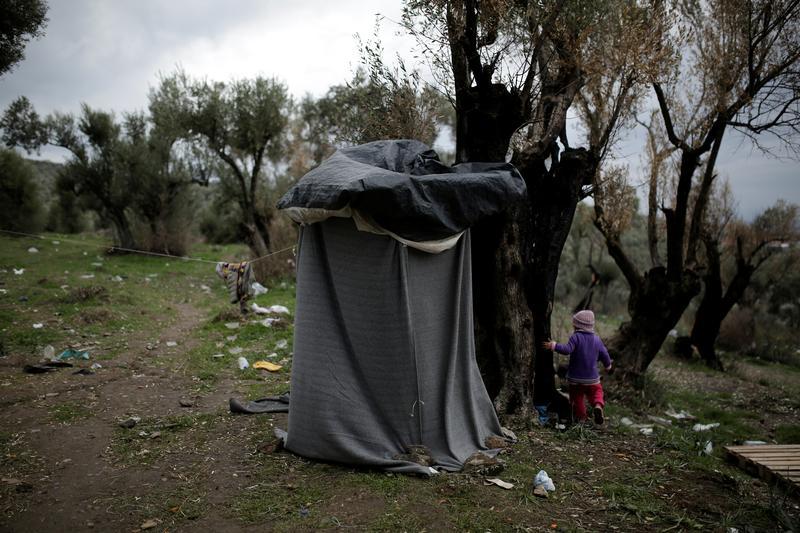Government Downplays Sexual Violence Risks in Migrant Hotspots
Hillary Margolis | Researcher, Women's Rights Division
A girl walks next to a self-made shower at a makeshift camp for refugees and migrants next to the Moria camp on the island of Lesbos, Greece, November 30, 2017. © 2017 Reuters
“Refugee women and children face heightened risk of sexual violence amid tensions and overcrowding at reception facilities on Greek islands.”
This is the alarming title of the report published Friday by the United Nations High Commissioner for Refugees (UNHCR), expressing grave concerns for the safety of women and children in the so-called refugee “hotspots” on Greece’s islands. The Greek government quickly responded – but not as you would hope.
Greece’s Ministry for Migration Policy attempted to sidestep the report’s warnings about sexual violence – and overcrowding and lack of hygiene and sanitation – by implying that UNHCR’s findings were not “thorough” or “scientifically substantiated.”
Yet multiple Human Rights Watch investigations revealed identical concerns.
In visits last winter and in 2016 to the Moria “hotspot” on Lesbos island – one of several sites intended to receive, identify, and process migrants and asylum seekers – we witnessed dozens of women, men, and children living in tents on the site’s walkways. Blankets were strung up to create a modicum of privacy in a massive warehouse. The camp, which then had capacity for 2,330 people, was housing over 6,000. We saw fetid toilets and people struggling to access clean water.
Women and girls said they experienced sexual harassment and threat of violence daily, deterring them from leaving their shelters or even going to the bathroom. They expressed little confidence that Greek authorities would help or protect them if they report incidents.
“Cynthia,” 18, from Cameroon, said a male asylum seeker in Moria threatened and assaulted her repeatedly because she identifies as a lesbian and wears clothing that doesn’t conform to gender norms. “He once pushed me against a tree by the throat,” she said. “I haven’t reported it. I’m afraid … If I report it to the police, maybe they won’t do anything, [but] if he is reprimanded, his friends will come and hurt me.”
In responding to the UNHCR report, the Ministry welcomed proposals to improve conditions in hotspots. Yet little has been done to implement previous recommendations by Human Rights Watch and other organizations to ensure that even minimum standards – such as adequate lighting, secure shelter and toilets, and effective reporting mechanisms for gender-based violence – are in place.
Every day that the Greek government dodges responsibility for dangerous conditions in hotspots is one more day that women and children are living in misery on Greece’s postcard-perfect vacation islands.

